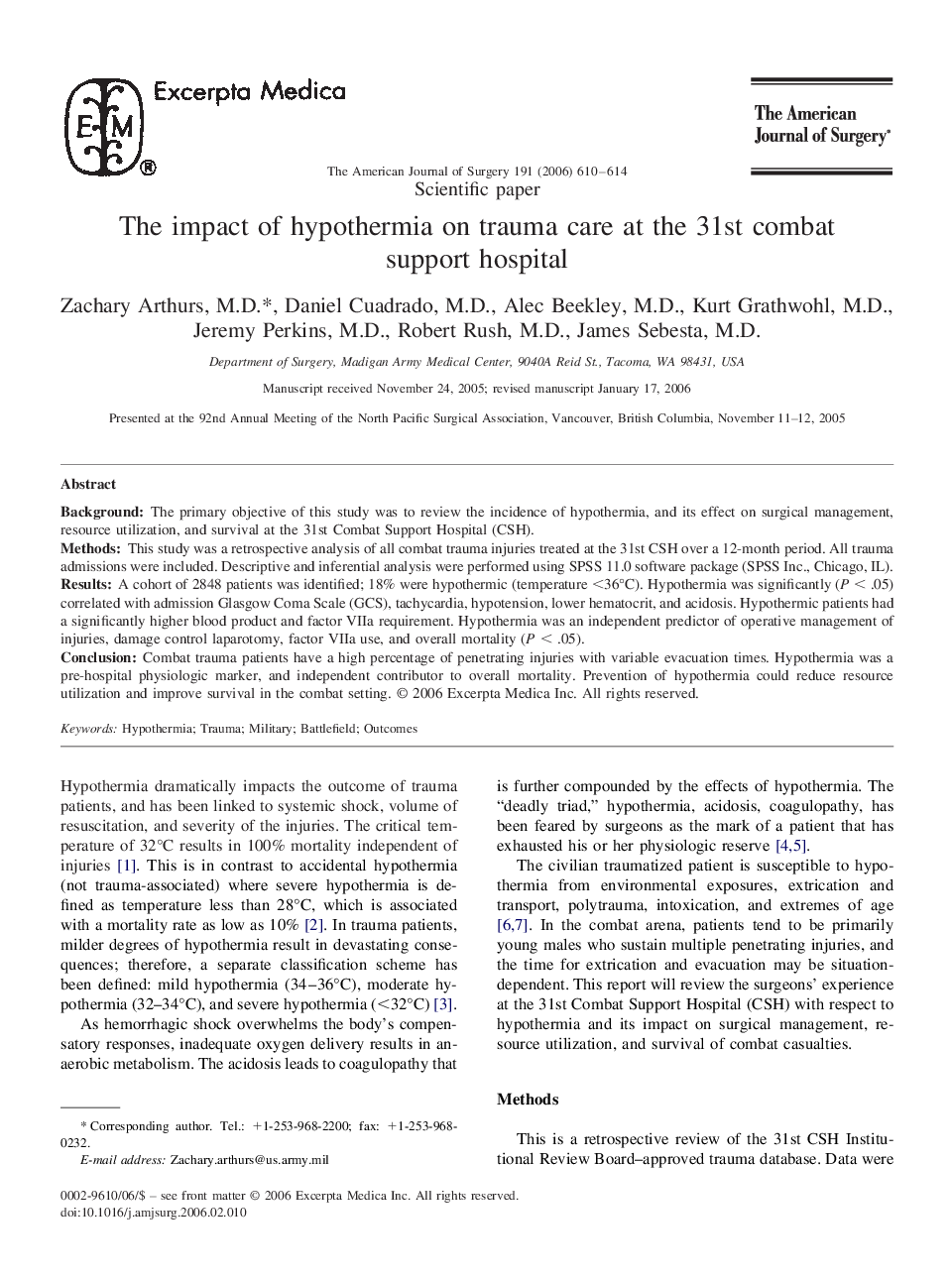| Article ID | Journal | Published Year | Pages | File Type |
|---|---|---|---|---|
| 4281893 | The American Journal of Surgery | 2006 | 5 Pages |
BackgroundThe primary objective of this study was to review the incidence of hypothermia, and its effect on surgical management, resource utilization, and survival at the 31st Combat Support Hospital (CSH).MethodsThis study was a retrospective analysis of all combat trauma injuries treated at the 31st CSH over a 12-month period. All trauma admissions were included. Descriptive and inferential analysis were performed using SPSS 11.0 software package (SPSS Inc., Chicago, IL).ResultsA cohort of 2848 patients was identified; 18% were hypothermic (temperature <36°C). Hypothermia was significantly (P < .05) correlated with admission Glasgow Coma Scale (GCS), tachycardia, hypotension, lower hematocrit, and acidosis. Hypothermic patients had a significantly higher blood product and factor VIIa requirement. Hypothermia was an independent predictor of operative management of injuries, damage control laparotomy, factor VIIa use, and overall mortality (P < .05).ConclusionCombat trauma patients have a high percentage of penetrating injuries with variable evacuation times. Hypothermia was a pre-hospital physiologic marker, and independent contributor to overall mortality. Prevention of hypothermia could reduce resource utilization and improve survival in the combat setting.
